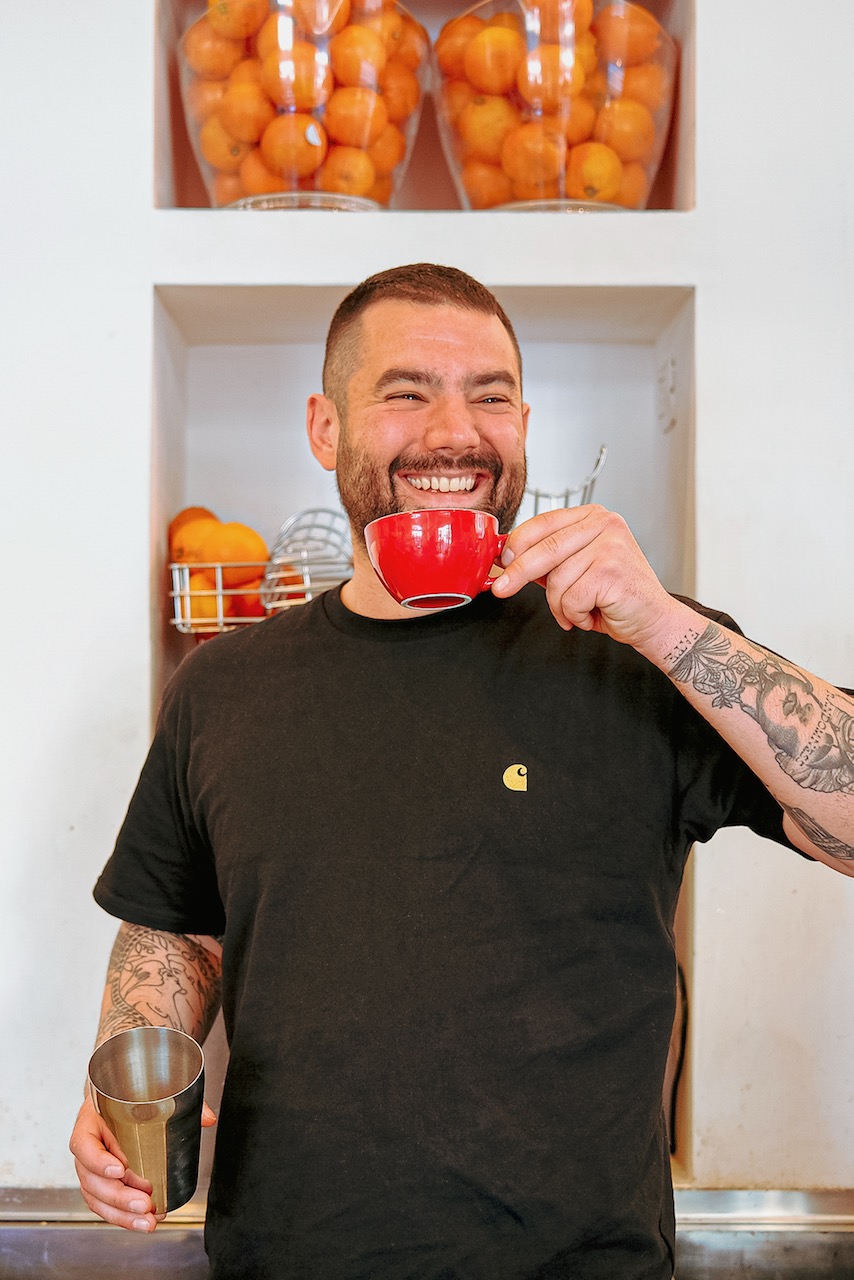
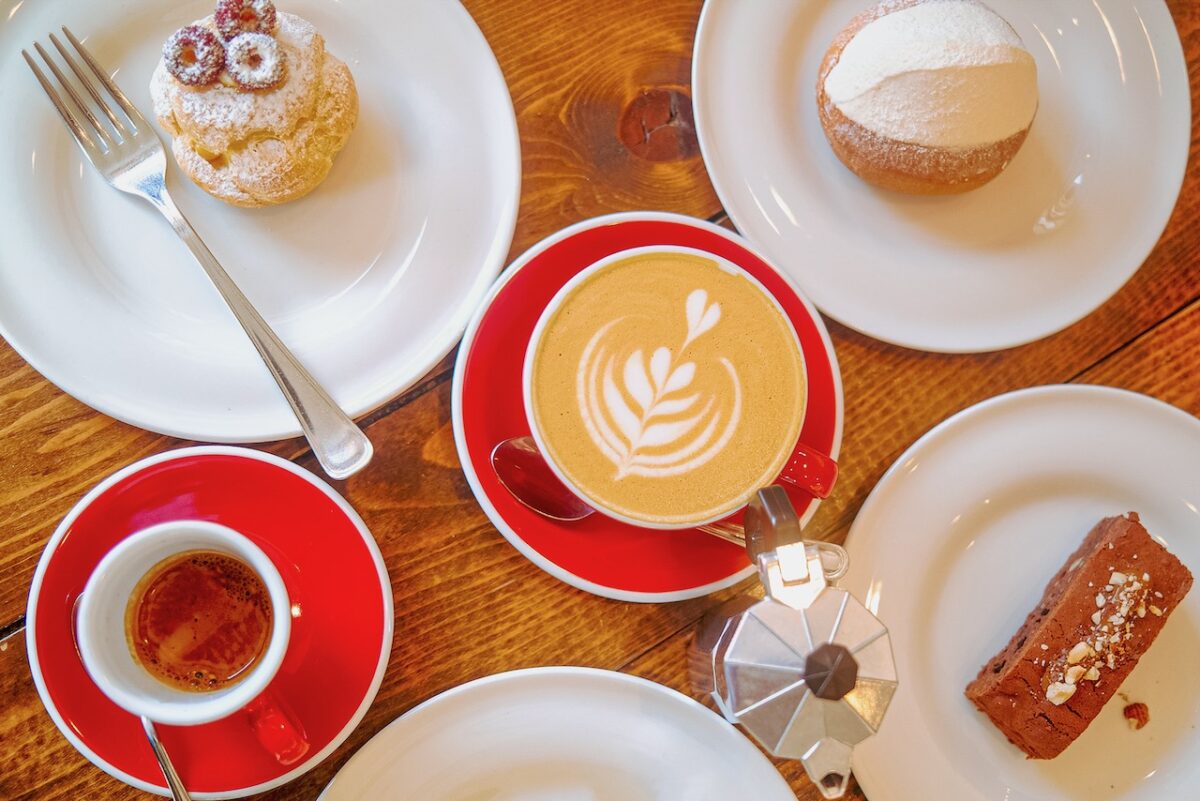
Faro opened in 2017 in Rome, Italy. The cafe has the vibes of a restaurant where customers can enjoy diverse food experiences from dishes and bread to sweets, all cooked on the premises.
Faro was co-founded by Dario Fociani, a native of Rome, and two friends Arturo Felicetta and Dafne Spadavecchia, with whom he shares ethical and political views. After graduating from university, Dario worked at different specialty coffee shops in Melbourne, London and Berlin over a period of six years, before finally returning to Italy when he was 30. Today, he is in charge of marketing at Faro, and also serves as head roaster at Aliena, Faro’s roastery little sister.
We’ve interviewed Dario to find out what it means for Dario to do business and live a life in Rome.
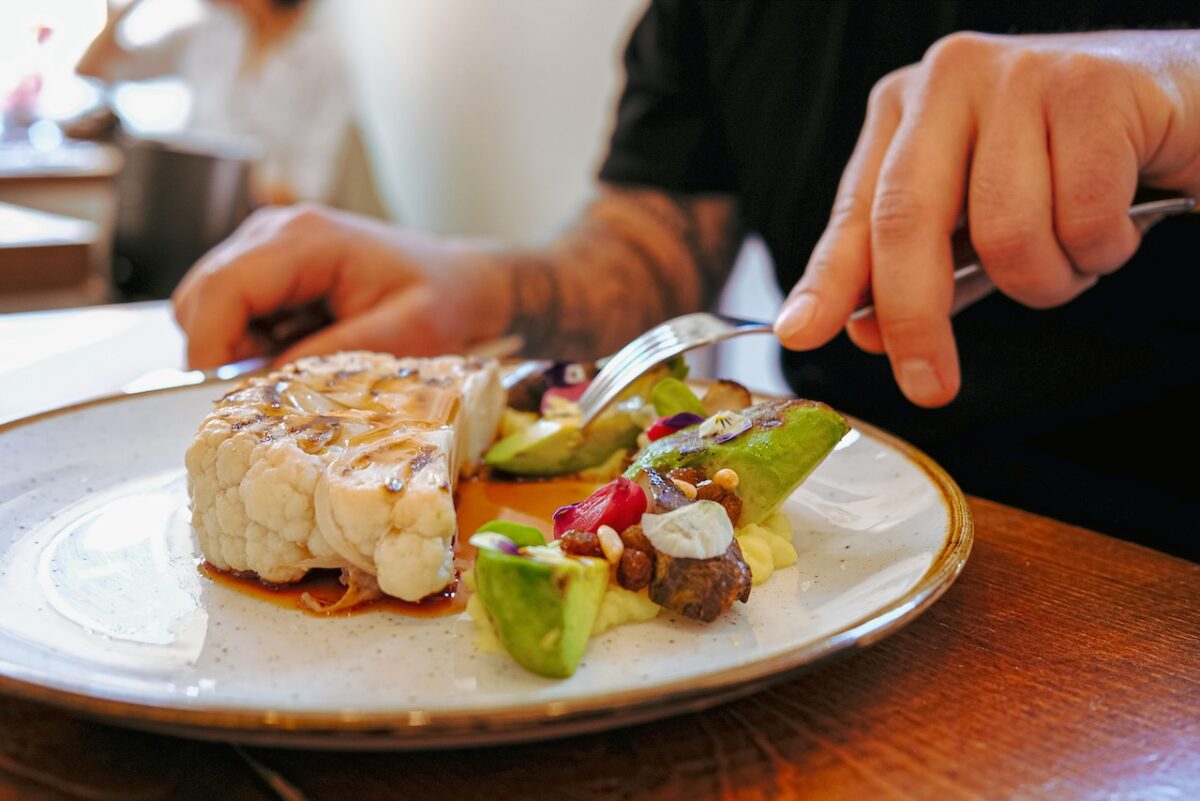
Put up a flag to draw like-minded people
Few specialty coffee cafes offer as diverse a selection of food and sweets as Faro does. No wonder, as its staff includes a chef whose creations adorn the ever-changing menu every day. Here, each day brings a different offering of daily lunch specials.
“In a sense, we are just doing what we love. We like to think about food and sweets as well as coffee. Coffee is just a flag of the store. I would’ve gotten bored if we served only coffee. And I don’t believe a business in Rome can survive if it has coffee only. So we aimed for our store to be both interesting and viable as a business.
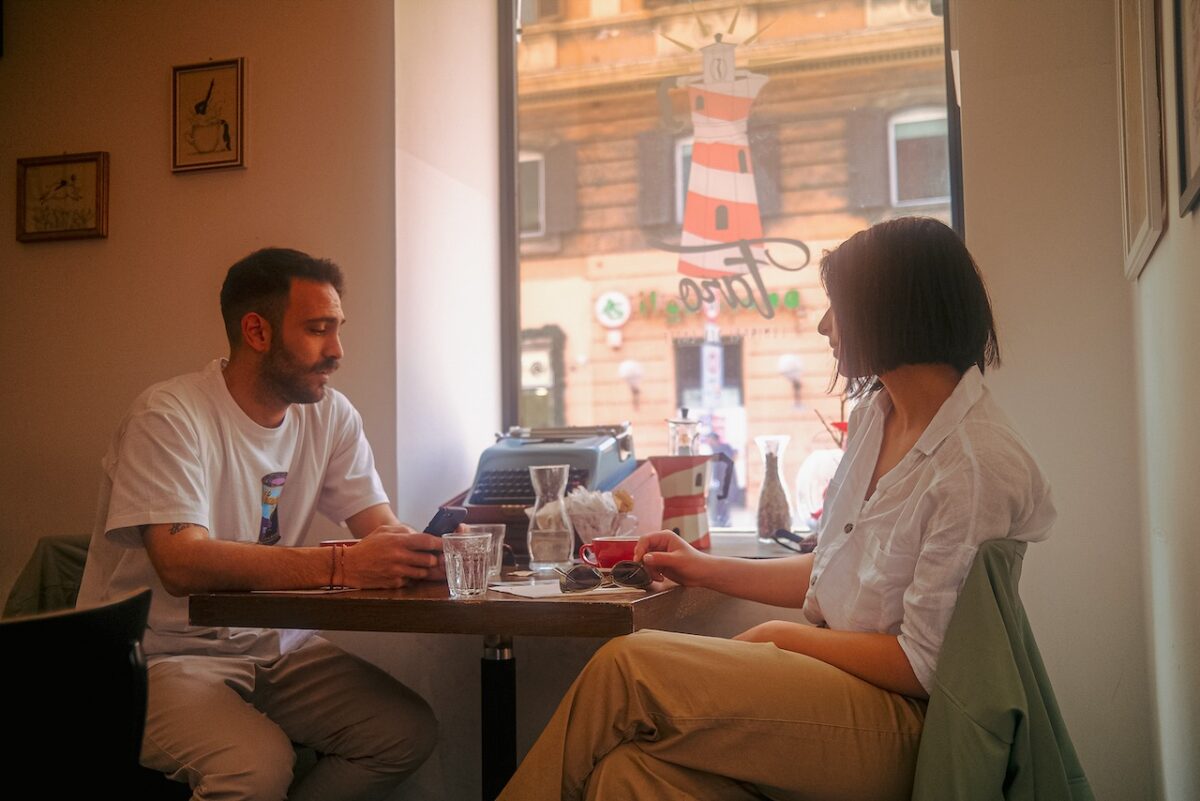
A good coffee shop attracts a lot of nice, interesting people. I like the feel of a melting pot a coffee shop can create. At Faro, we see many different people, from rich families from Saudi Arabia to ordinary Italian folks and tourists. Unlike a fine-dining restaurant, a good coffee shop is open to anyone.”
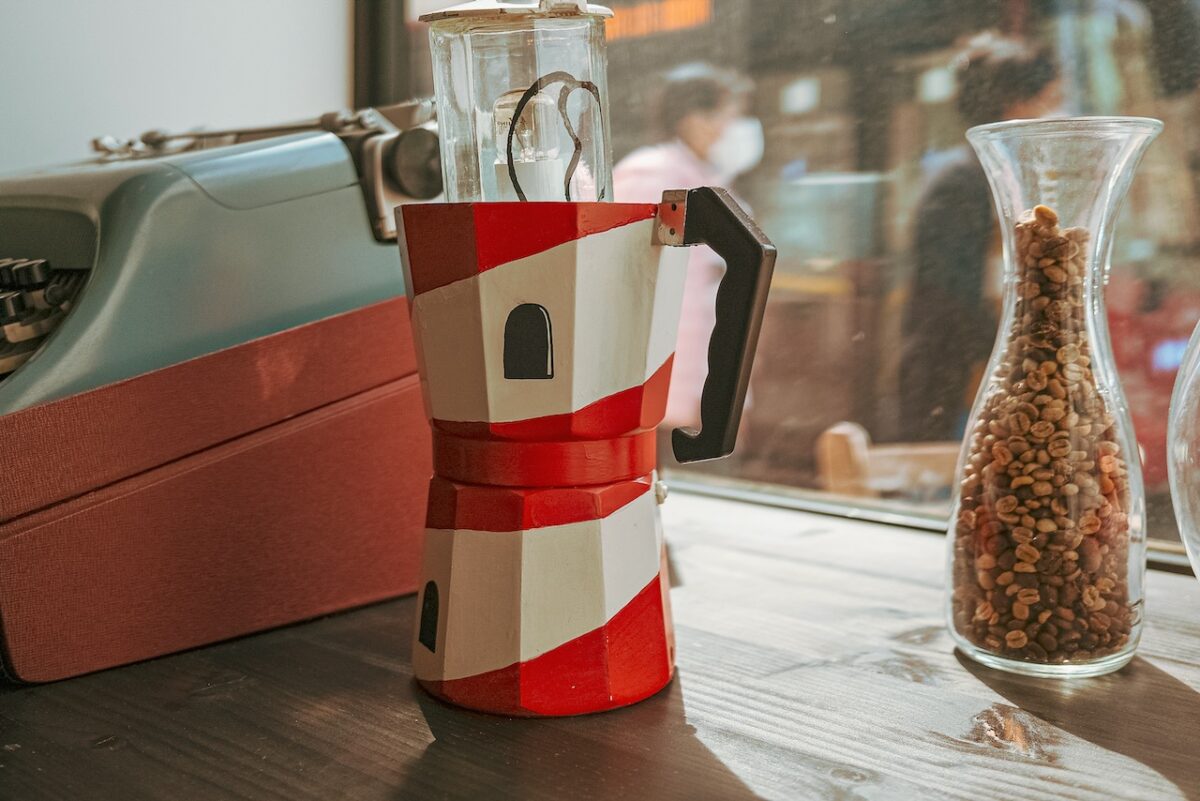
The disarming, warm design of Faro’s website is a manifestation of this idea. Meanwhile, the specialty philosophy of “traceable,” “sustainable” and “artisanal,” publicized front and center on the page, offers a glimpse into the three co-founders’ firm belief.
“Commercial, industrial ways often don’t reflect the appropriate cost. When a product is cheap, most of the time, there is the risk that someone involved in the production is not getting paid enough. To build a good system, you need to do things in ethical, right ways. ‘Faro’ is an Italian word for ‘lighthouse.’ It reflects our desire to be a safe gathering place for customers and to shine a light on the less transparent parts of the coffee world.
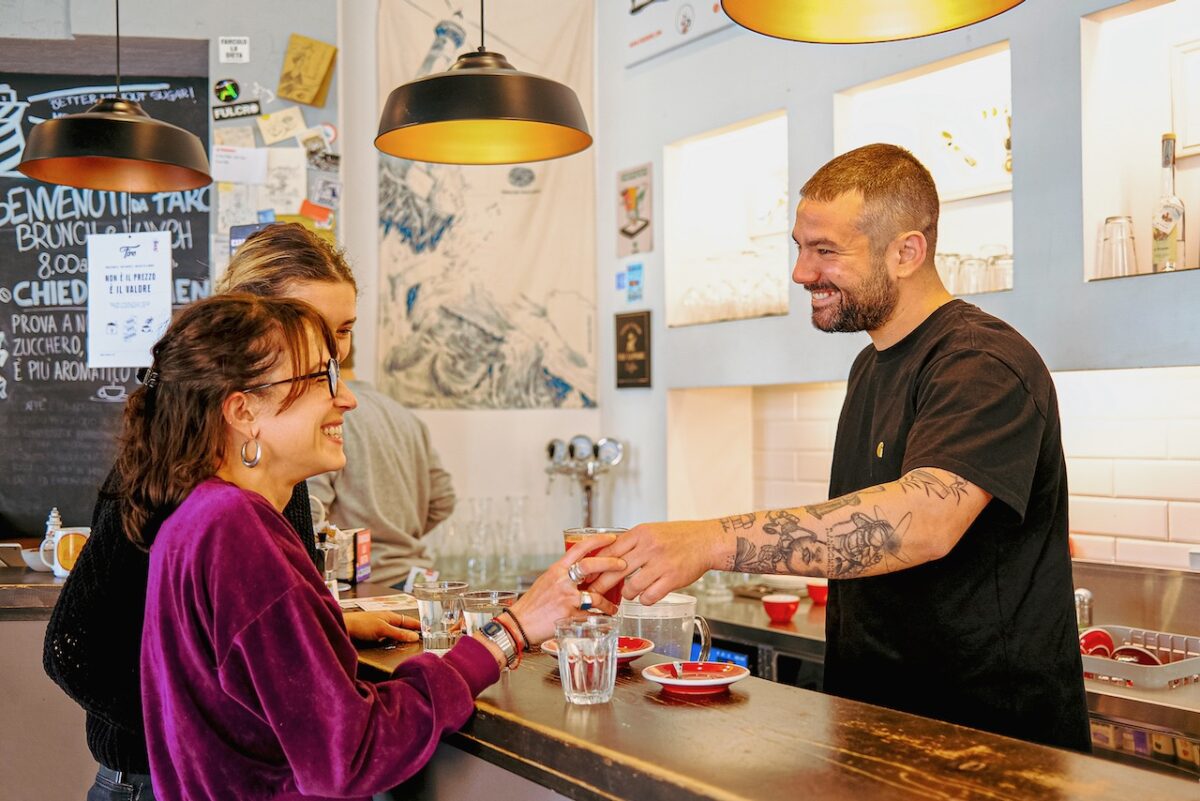
When you put up your own flag, you start to attract people with similar ideas. Even if people with different opinions come to you, they will feel uncomfortable and leave. Sometimes, people from Melbourne come to Faro and say, ‘I feel like I am in Melbourne.’ That’s very nice to hear.
Although Faro is in Rome, it’s not a place just for Romans. I believe people connect with each other not by where they are from, but by values and philosophies they have. Faro respects the historic, beautiful city of Rome. But it’s also a place that draws people with similar ideas. After all, I don’t identify as a Roman that much myself, but more as a human being with progressist ideas on Planet Earth.”

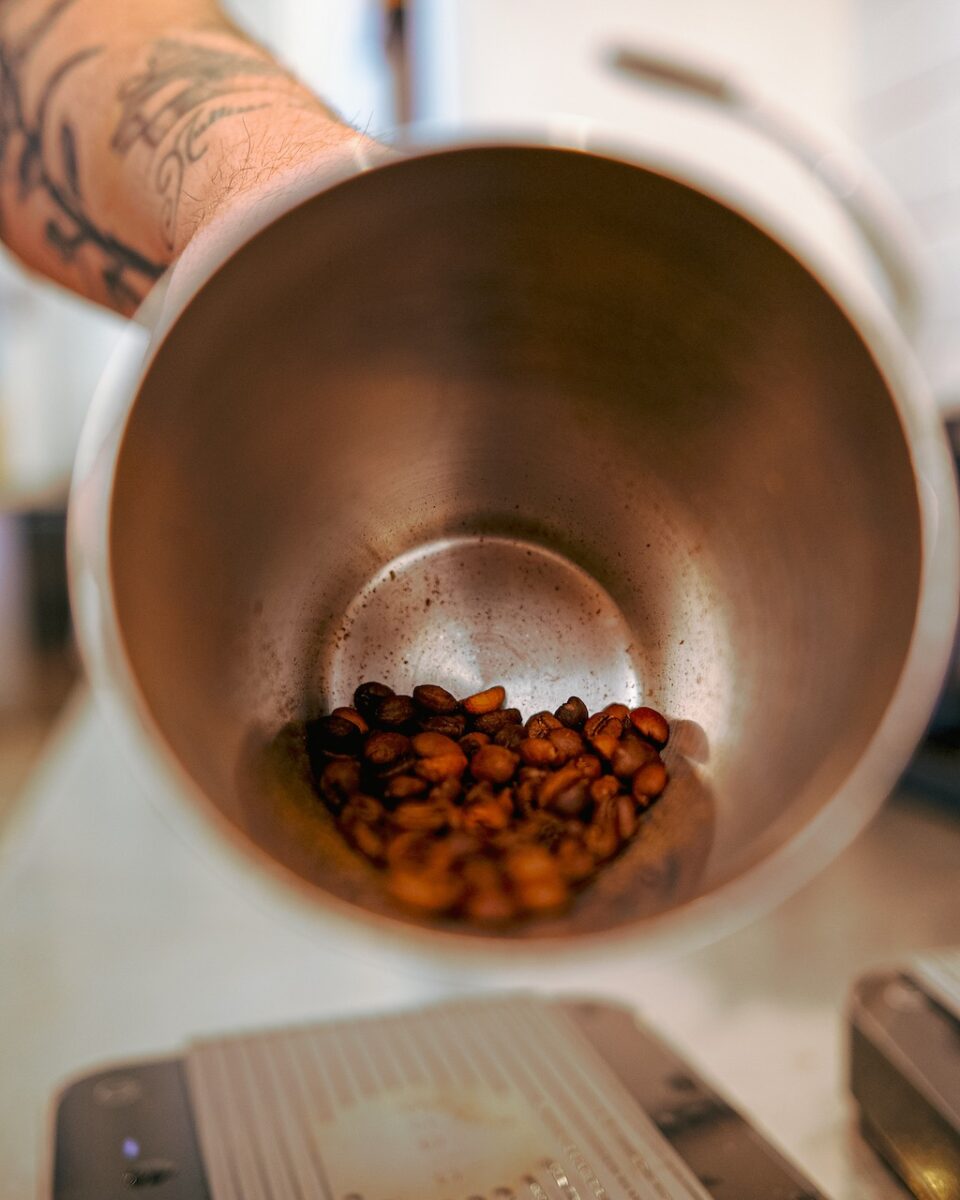
No place like home
Dario left Rome in 2010 when he was 24 years old. When he graduated from university a year earlier, the global economy was still reeling from a crisis triggered by the collapse of Lehman Brothers. Perhaps such circumstances played a part, and he couldn’t find a job he envisioned as a student. That was partly why he left home.
“Italy was traditional and conservative in a bad sense. There was no cultural enjoyment. Rome, in particular, is a big city of nearly three million people. It can be a very stressful place. I gradually started to feel that I didn’t want to be here, and that I had to leave this country.”
A travel lover since childhood, Dario doesn’t like a monotonous cycle of life where the same old thing gets repeated every day. For a person with such a nature, there were no reservations about living abroad. In fact, he chose Melbourne as his first destination because it was “far from home,” he says.
“If it takes 24 hours of flight to get to Italy, it’s not easy to go home. In Melbourne, if you struggle, you just have to struggle before saying, ‘I will go back home.’”
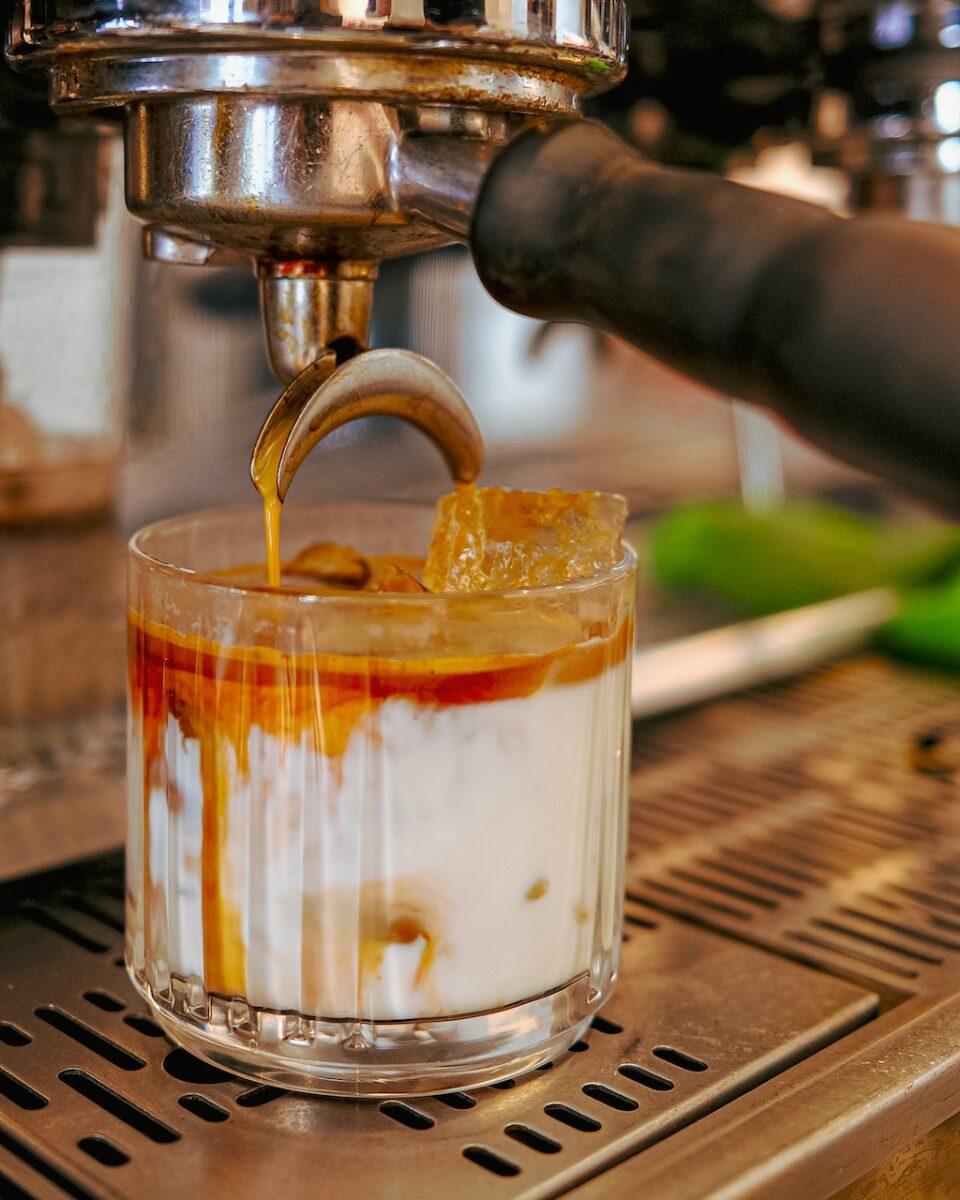
When Dario went to Melbourne for a working holiday in around 2010, the city’s coffee culture was fast-growing. There were many cafes in the St.Kilda region, where he was staying. Dario was initially working at a restaurant. He washed dishes in “Cicciolina” while he was studying English and also waited tables at “La Svolta”, an Italian restaurant. But a natural course of events eventually drew him to coffee.
“One day, I had a Costa Rican coffee at a cafe on Balaclava Street. It was unlike anything I’d ever tasted. And the barista was very nice, too, explaining to me details about the coffee. It wasn’t bitter, and had a pleasant acidity. It didn’t need sugar, either. I always thought coffee was bitter. But that idea changed completely.
The barista also had very good latte art skills. In addition, cafes are open during the day. So I thought I could leave a lifestyle where I went home at 3 to 4 AM. For these many reasons, I chose to start working at a cafe.”
Though Dario initially planned to stay in Melbourne for just six months, he ended up spending two years in the city. Then he decided to move to London as a sense of nostalgia grew within his heart, partly because he could only go back to Italy once a year. London, though, was just a two-hour flight from home.
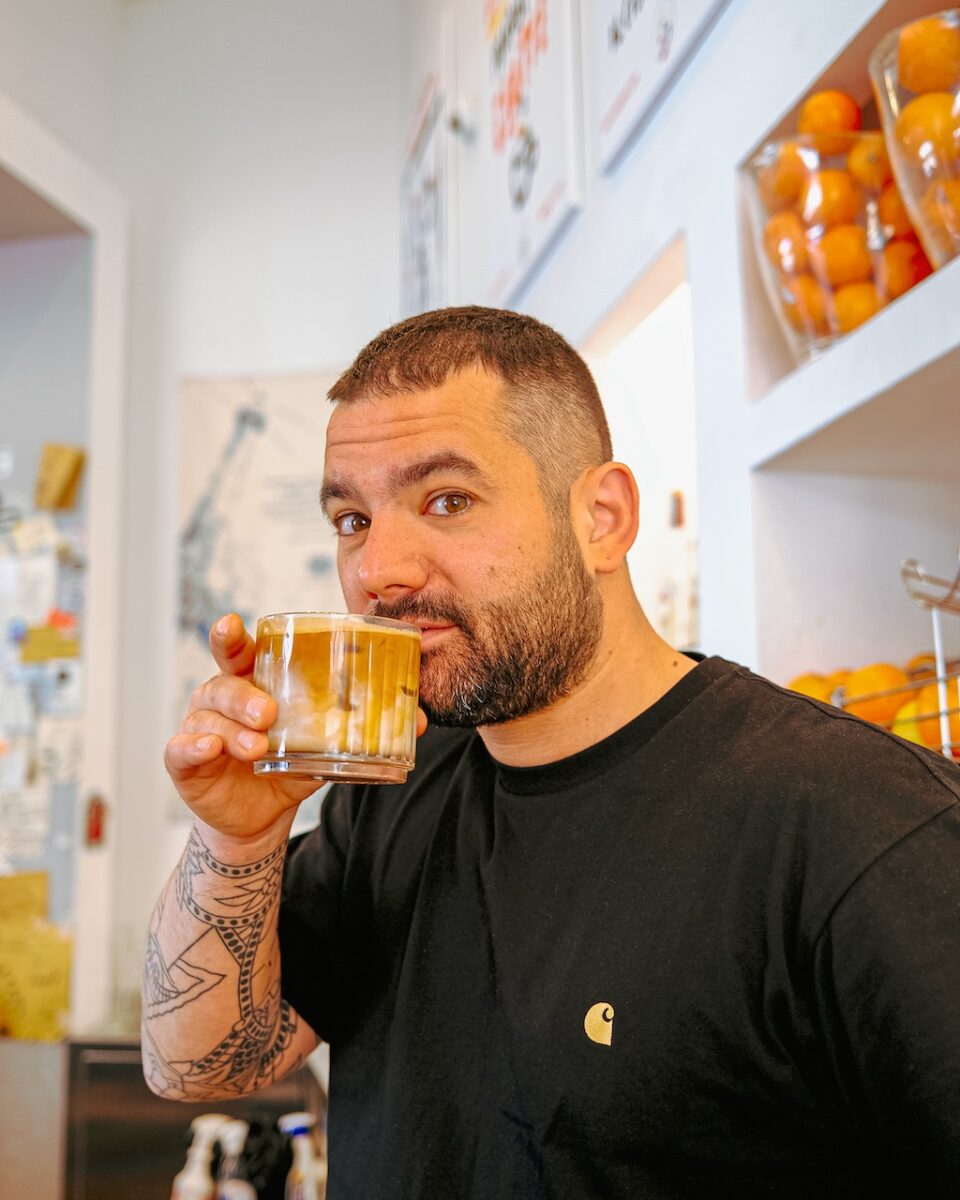
After two-year stints at different specialty coffee shops in London and Berlin each, Dario returned to Rome in 2016.
“After all, I found out I have strong connections and feel a sense of belonging in Rome. And here, I can watch my parents as they grow older. I also didn’t want to spend the rest of my life speaking a foreign language. After spending a long time speaking English, I realized that I can be really myself only when I speak Italian.
I also had a big chance to be a pioneer in Rome, where there was no specialty coffee shop at the time. If all these things hadn’t been linked, I would probably have made a different choice.”

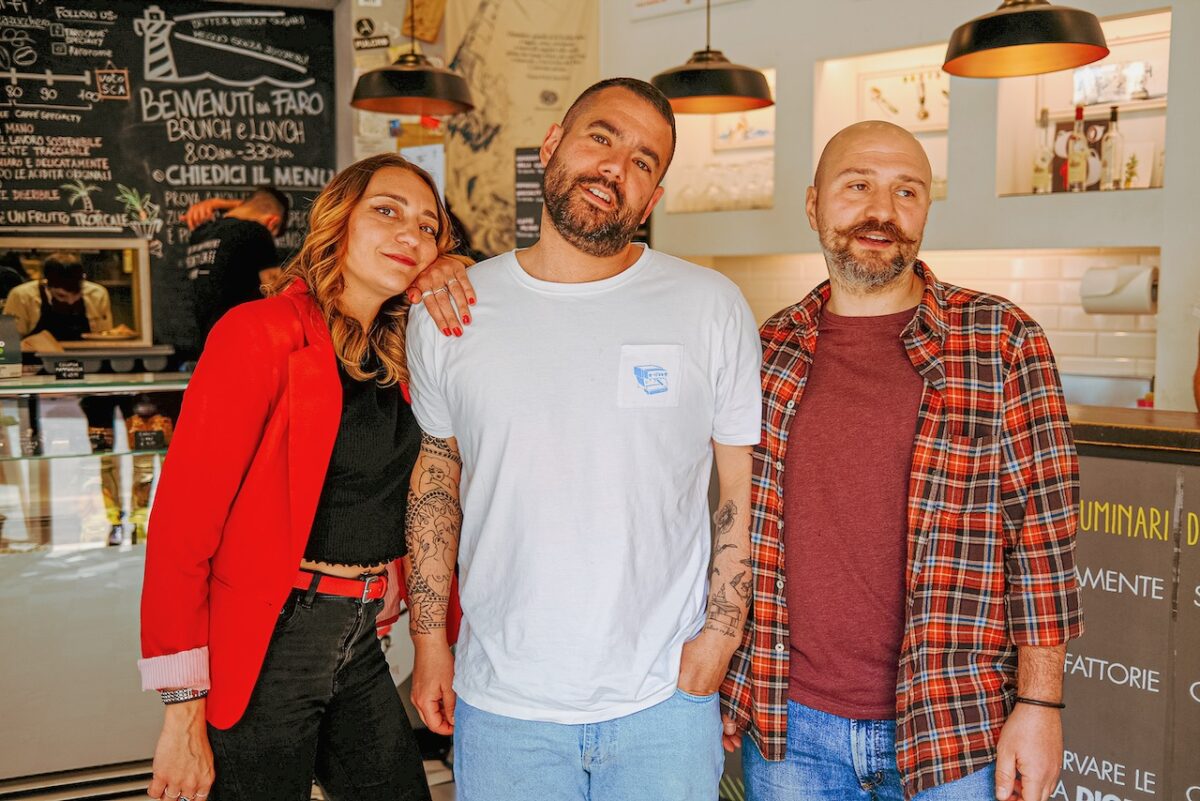
Quality is a reference of truth
Dario co-founded Faro in 2017 with two friends, following through on a plan he hatched during his years abroad. The domestic market had gone through a major shift while he was away, which served as a tailwind for their business.
“People had become more aware of high-quality foods, like craft beer, natural wine and artisanal bread. That was unthinkable before. Once people become familiar with these things, it’s easy for them to understand that specialty coffee is also something special.
Quality is a reference of truth. Apart from close-minded people, many people can recognize a difference when they try quality things. People like better things because after all, life is made of experiences.
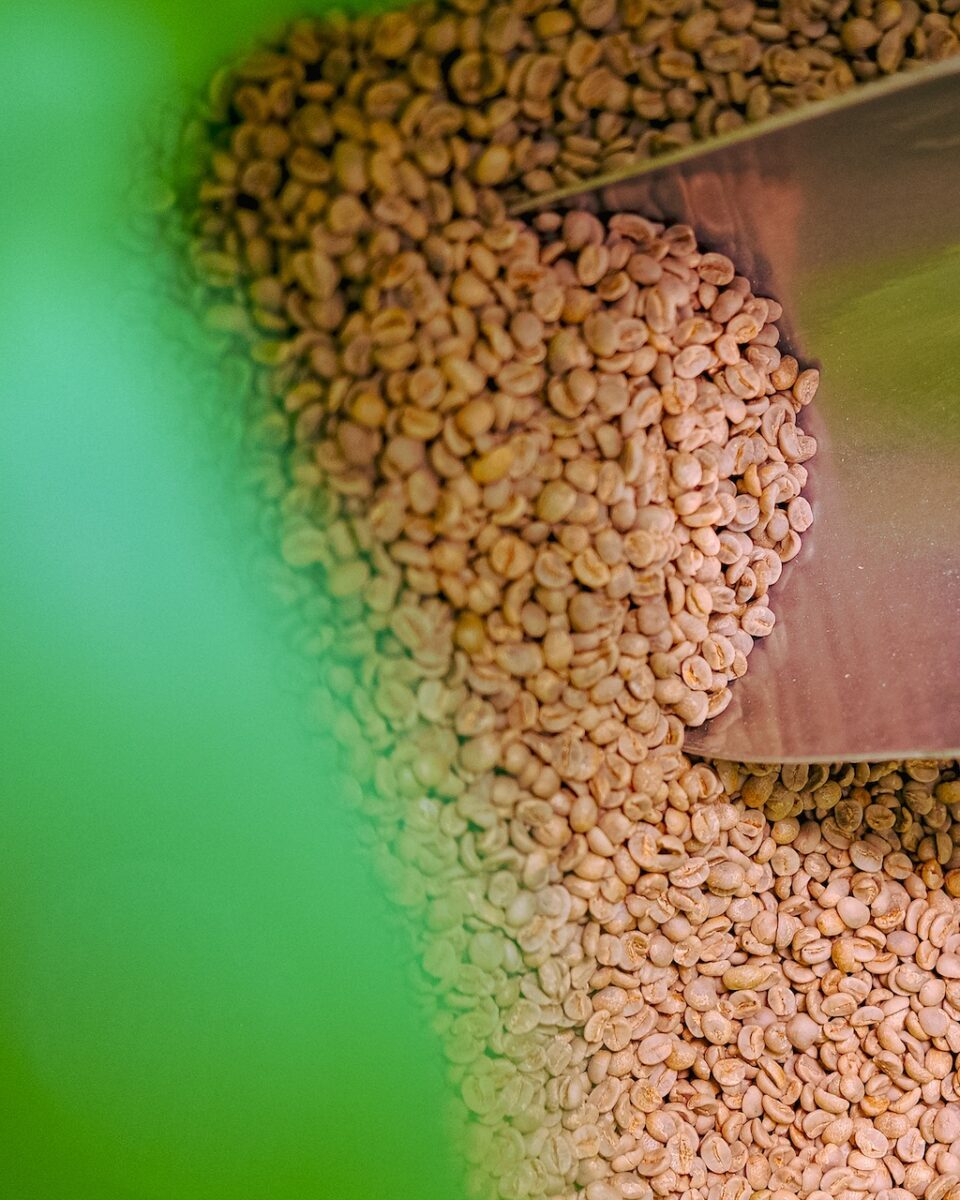
Back in the 1990’s and 2000’s, foods were industrial products. Many foodstuffs in supermarkets were not transparent as to where they came from. But nowadays, many people are more sensitive to what agriculture is and what is genuine, thanks to climate change and other issues.
It’s not something you think with your head, but something your mind and body feel. Even when I drink natural wine and get drunk, I feel better the day after. My body prefers quality things. It’s the same with specialty coffee. My tongue tells me that it’s a better experience.
Be it seeing, tasting, and hearing, perception is connected to the brain. It is a filter to reality. Not only good food, but good music, good books, and good friends… All these things give us a better perception. In other words, if you are surrounded by bad friends and bad people, or if you eat bad food, it shows your ignorance. If more people find out what is good and what is bad, the world will be a better place.
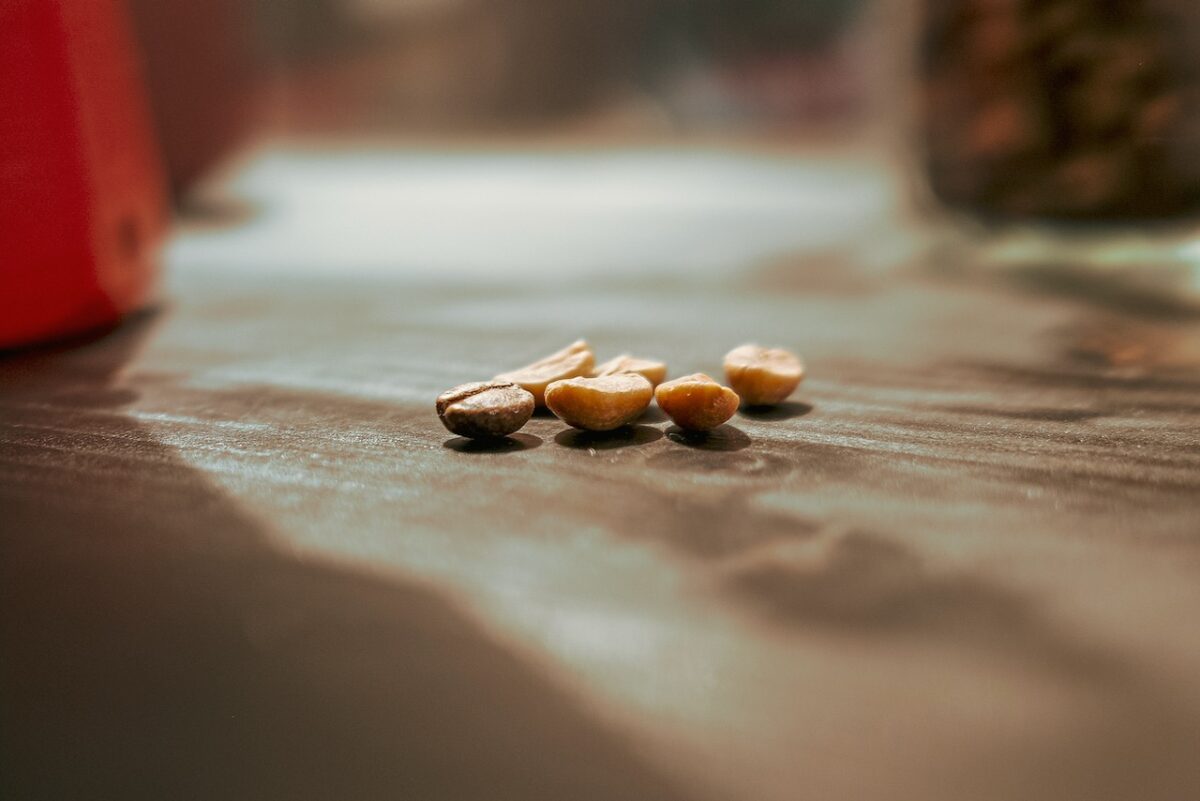
Unfortunately, the world is made up of people with a big influence. In a capitalist world that prioritizes economy over anything else, large companies are the ones with the biggest influence. 90% of products in the market, including in Italy, are of poor quality. We are always fighting against bad influences big companies leave in the fields of not just food but also music and art. When you choose something that’s made for money, it means you renounce something cultural. And that’s the same thing as giving up your own identity.
That’s why we want to do what we can, however small it is, to help people. If many people start to seek better things, they will be able to find more truths.”

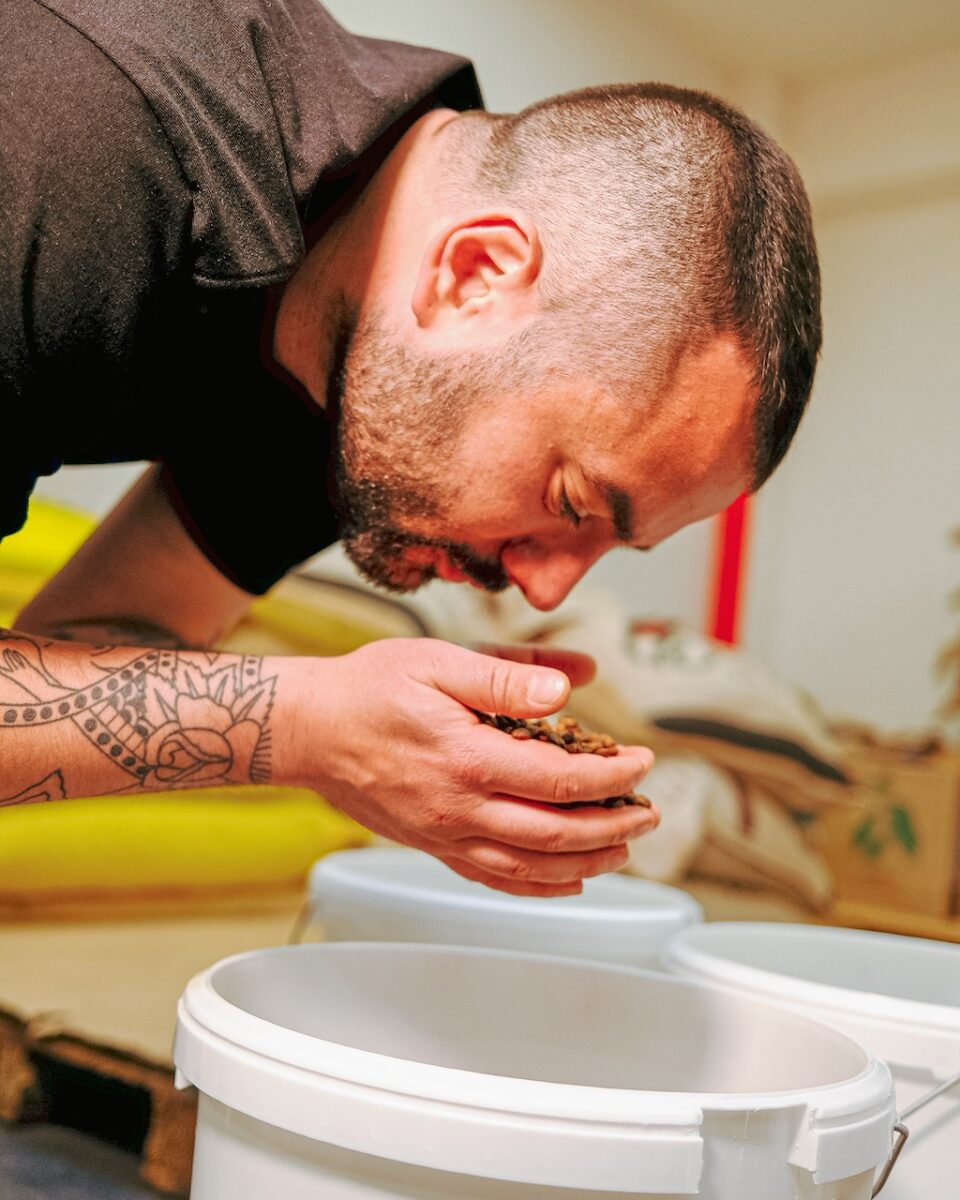
We are not alone
The name Faro – or lighthouse – also reflects a desire to become a beacon of light for someone.
“People feel stressed and lonely when there is no one similar to them around. In such a case, things could only go a bad way. So we want to say to people, ‘You are not alone.’”
No one feels more strongly about this message than Dario himself, because it stems from his own experience. As he grew into adulthood, he developed values and passions different from his childhood friends’. And as common ground with them became narrower and narrower, a sense of isolation started to gnaw at him. This feeling of loneliness was one reason he decided to leave Rome.
Dario is sensitive to the world around him. For a person with such receptiveness, living in the metropolis of London came with its share of distress, which exacerbated his melancholy.
In this expensive country, scraping by on a small paycheck was a stressful challenge in itself. But as if that wasn’t enough, long stretches of cloudy days and short daytime in winter unsettled Dario. His mood seemed to be at the mercy of the weather, depressed under clouds and rains, cheerful under the clear blue skies. The lack of emotional balance was such that he felt as if he was experiencing a rollercoaster ride of emotions. Once he found himself at odds with the city, the ideal of a peaceful life became a hope too far out of his reach.
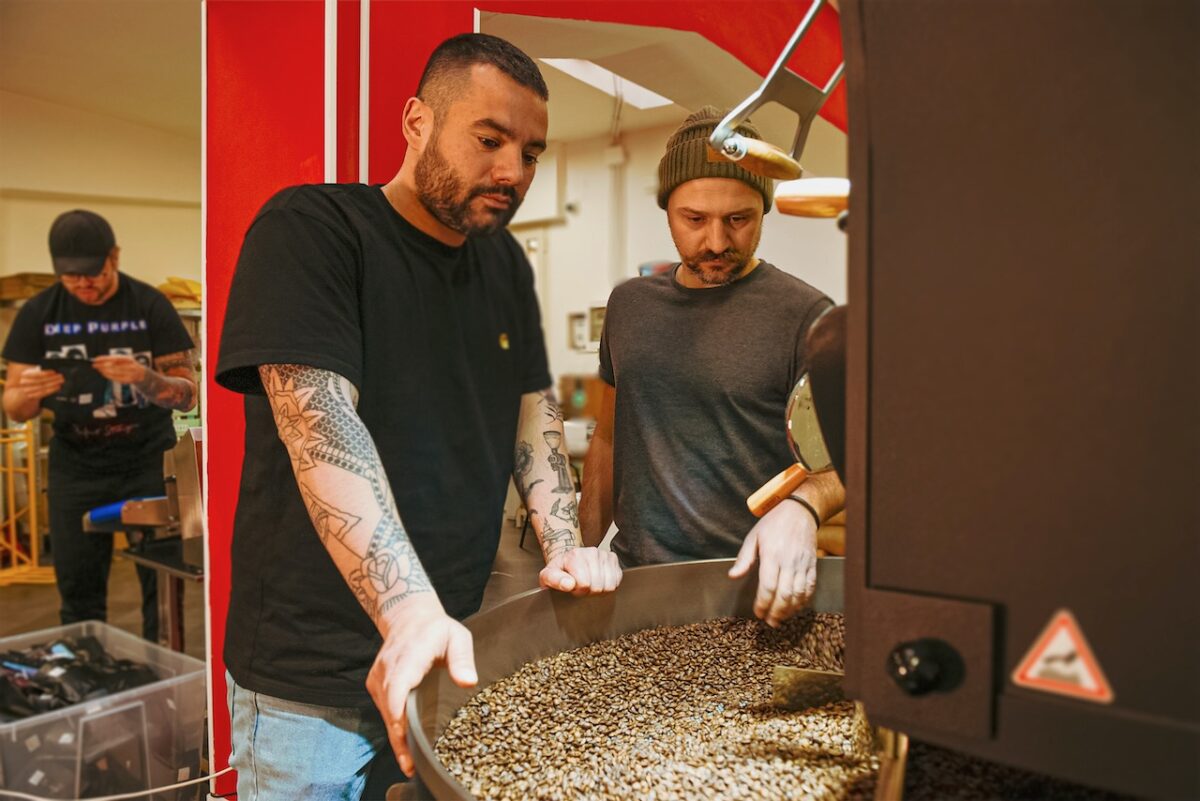
Leaving London proved to be a way out of the hardship. Dario moved to Berlin, Germany, but didn’t take a plane and instead used a train to take it slow, to acclimatize his mind to the change at his own, leisurely pace.
“Living in London was very tough. But it also taught me many things. It was like a training gym for me. A place that is not necessarily fun but makes you better.
Of course, Rome is a big city, too. And Rome makes me sad a little bit, too. But I can maintain a balance in this city because I have my roots here and my own small world where I feel comfortable.
After I set up my own business, I’ve gotten to make many friends with common values, including owners of other restaurants. That is my asset. I know how happy it is to be with good people precisely because I have felt lonely in my life.”
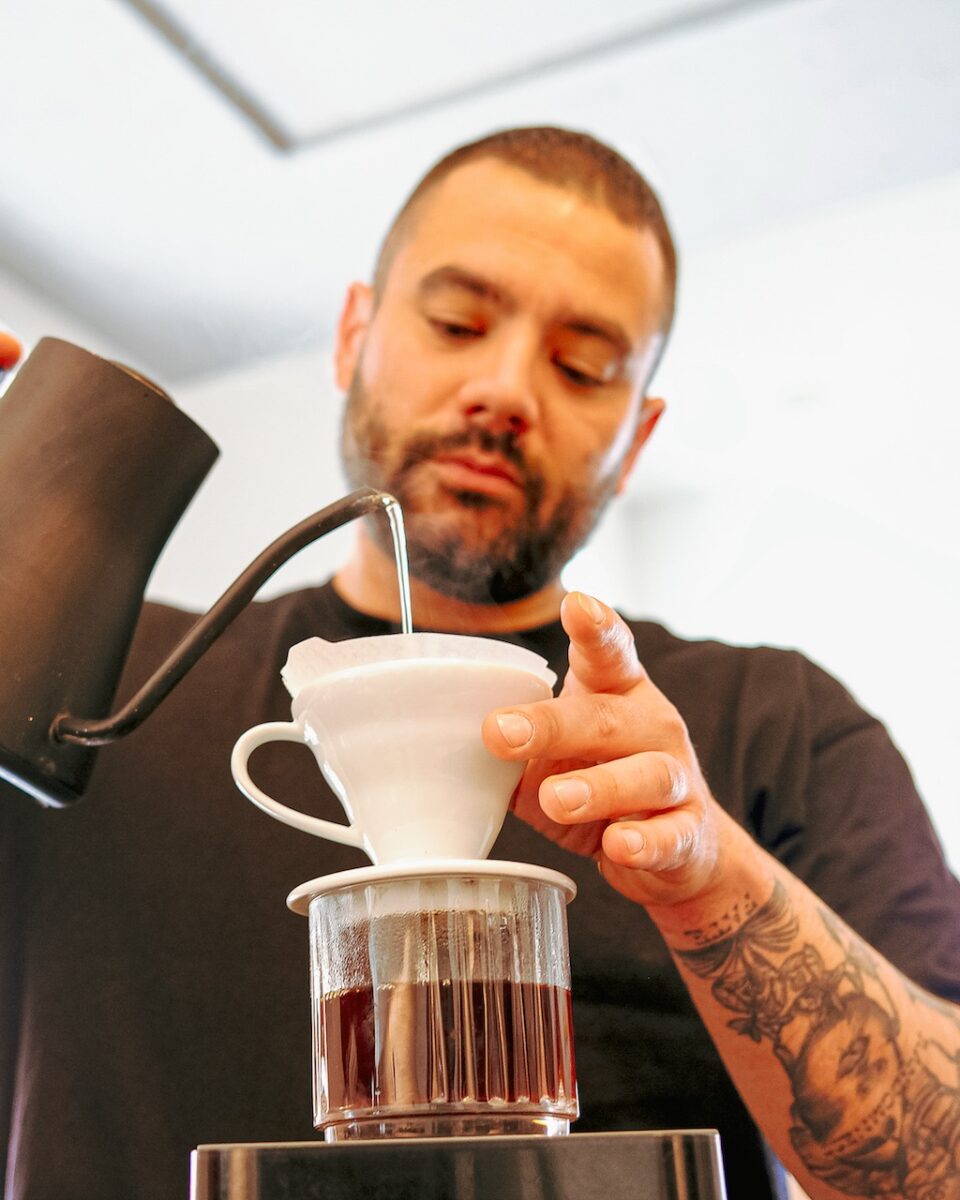
You can’t be anyone else but yourself, nor can you experience others’ lives – Such compulsive anxiety always haunted him since he was a child. For him, life is a training ground to gain what he is missing, and a journey to find certainty. For Dario, who was lost in life, starting a business that epitomizes his values and philosophy was an essential process to find balance in life.
“The first two years of Faro were very tough because I wasn’t certain what the future held. But we felt more sure of ourselves after overcoming the Covid-19 pandemic. I keep peace of mind nowadays because I try to embrace everything that happens to me. Of course, that’s not easy. But when I feel the need, I shut my eyes for 20 minutes to relax.
I tend to experience high peaks and low peaks of emotions because small things can affect me. But I’ve already lost myself enough. This universe is infinite, and time is eternal. I can only do so much. I am just a comma in a thick book of grand story. That’s why I focus on what I can do as best I can. This mindset relieved me from stress.
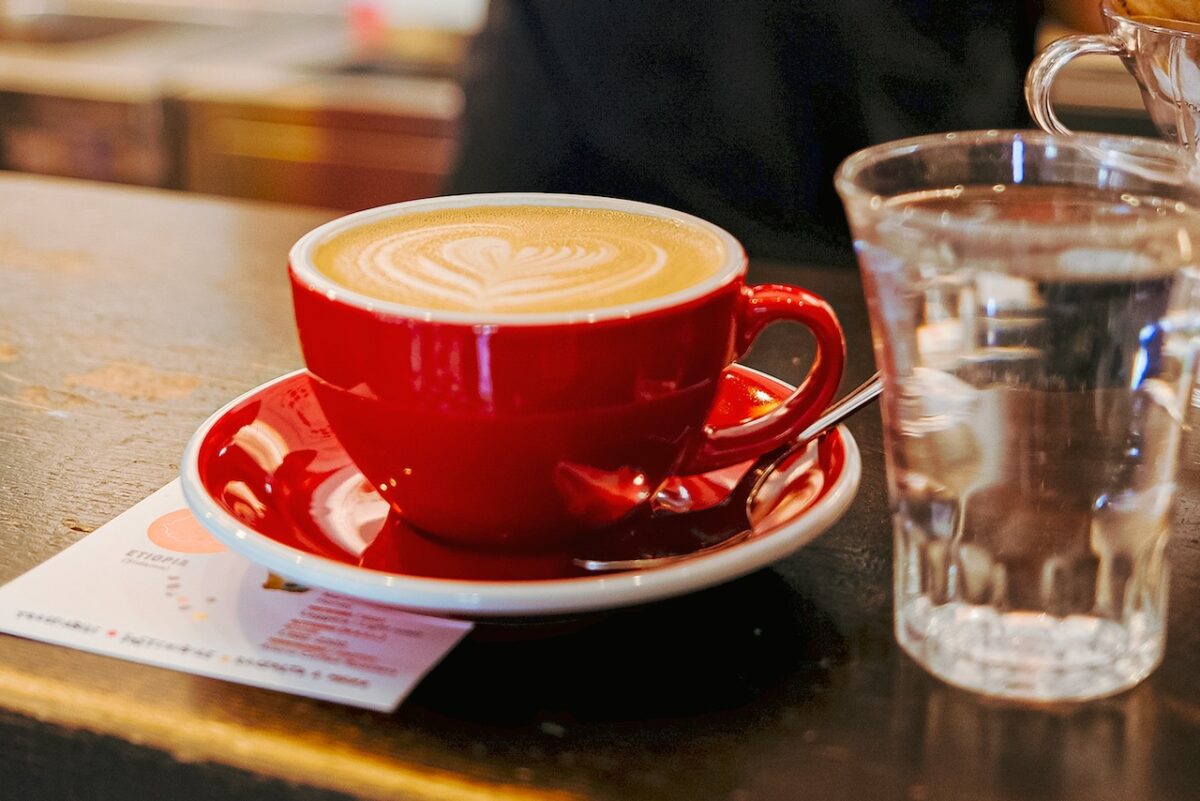
Faro has entered its sixth year. But 90% of Italians still don’t know about specialty coffee. My goal is to introduce many more people to the concept, while growing Faro and Aliena in an ethical, rich and healthy way. Our impact on society is small. But that’s enough for now. I feel happy with my life. And that attitude will be projected onto a world around me.”

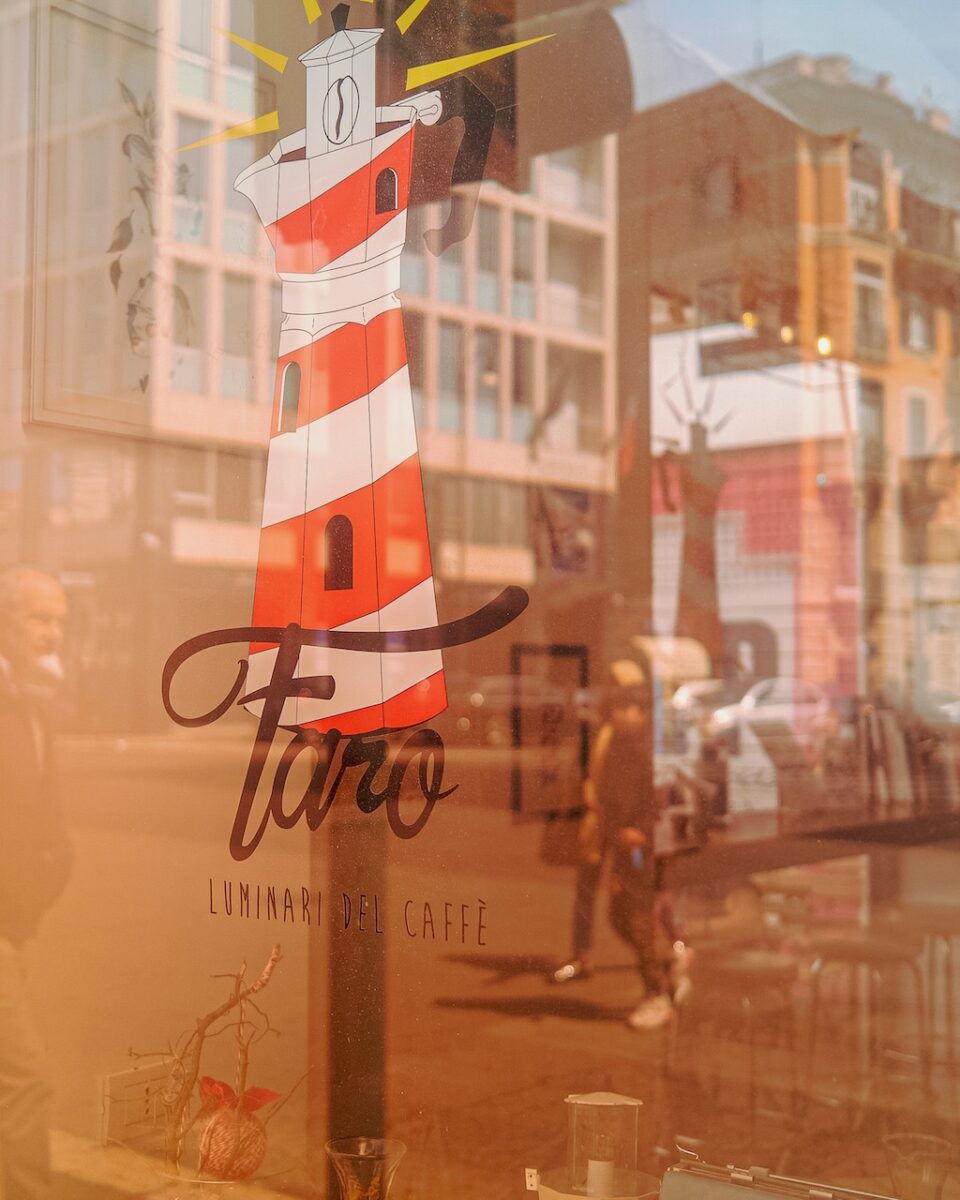
Breaking habit for evolution
Italy has changed, I have changed, says Dario. But he describes Rome as a city of jungle that’s far from his ideal.
“Many people in Rome are cynical and individualistic. It’s hard to live here. When people think only about themselves, they stop trying to help others who are suffering and struggling. Such a society divides people into winners and losers, which creates a jungle.
But that’s not because Romans are evil. It’s because of mismanagement. Roma is a big city that dates back 2,500 years. Because of its historic value, it’s often hard to build basic infrastructure that’s necessary for life.
For instance, Rome has three subway lines. But they are far from functioning. There are plans to build a new subway system. But there is always archaeological stuff when you dig the land, and then construction has to be stopped. So many people drive cars, which causes traffic jams all the time. And cars make people even more individualistic because they travel in the privacy of their own space. People in Rome need more communication.
We are trying to restore human connections through our business, and break a habit that makes Rome what it is today. I think that is the best way to evolve the market and people as well.”
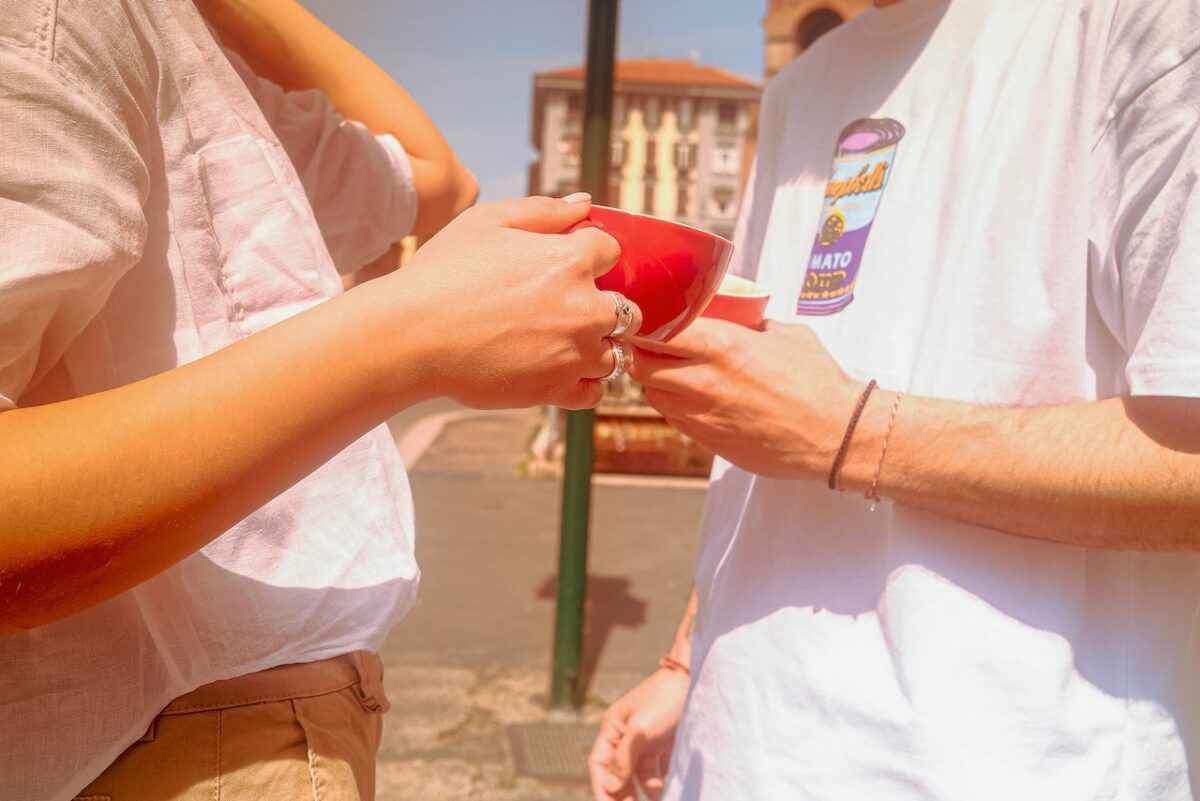
He still has vivid memories of his days in Melbourne and Berlin – both big cities like Rome.
“In Berlin, I saw ads and messages on the tube and everywhere, telling people to love Berlin and respect each other. The city was divided by war for 40 years. And when it ended and the Berlin wall collapsed in 1989, I imagine people longed to bring back human connections. It was around 2015 when I was in Berlin. So the situation was different. But I believe the effects of the war are still deeply rooted in people’s minds.
When it comes to Melbourne, meanwhile, the city has a relatively short history of around 150 years. It’s no exaggeration to say that the oldest building in Melbourne would be the newest structure in Rome. Perhaps because Melbourne didn’t have tradition or history, it was easy to build a city that’s functional for residents. I felt a sense of community wherever I walked in Melbourne or Berlin, even if there was nothing special around. And I actually loved Merlbourne and Berlin incredibly.
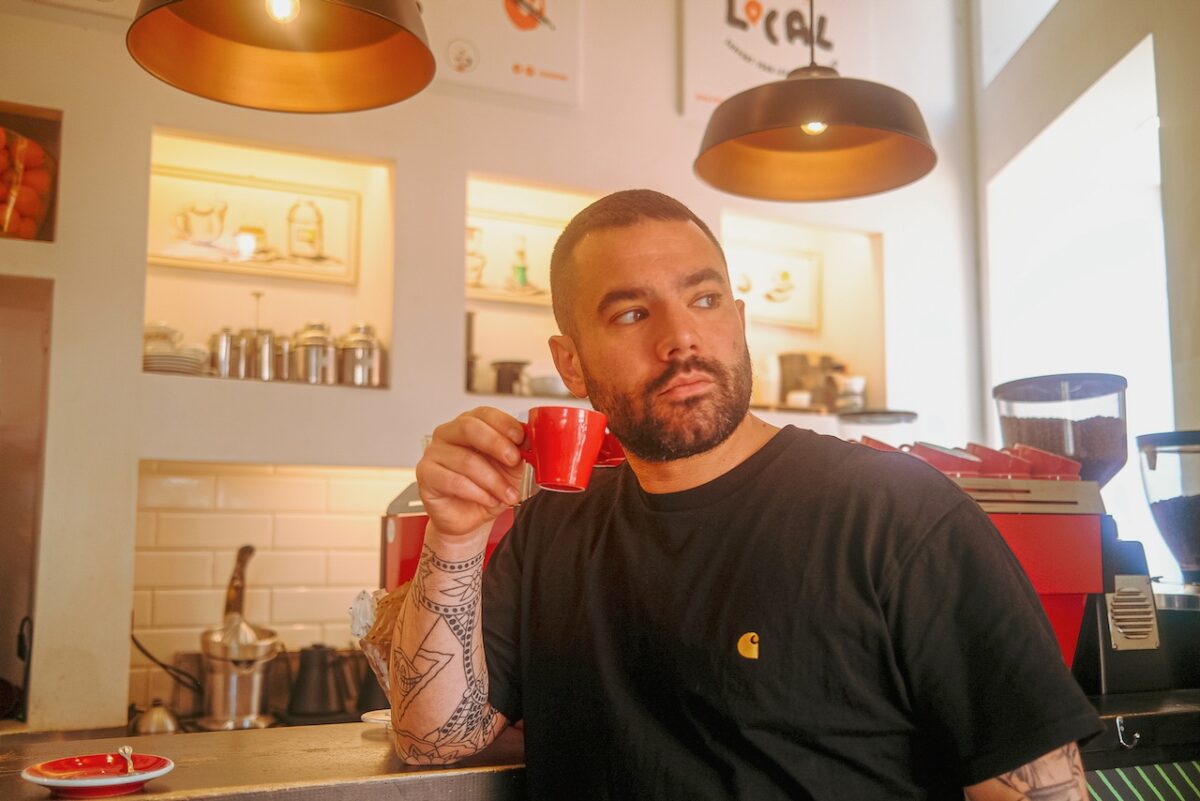
I think people are made of 50% genetics and 50% habit. The more similar a society becomes to a jungle, the more people’s habits change, becoming closer and closer to animals in a bad sense. Connecting with each other is the way humans are supposed to be.”
Dario says he doesn’t feel like a classical Roman. Feeling isolated and disappointed, he once left the city. But he found that after all, it was a home that will always hold a special place in his heart.
Maybe, Dario is seeing eternal connections between his family, hometown, its history and culture. That’s perhaps why he chose to embrace the city of Rome the way it is, but also to change this world to a more comfortable place.
Originally written in Japanese by Tatsuya Nakamichi
Photos by Carola Blondelli
MY FAVORITE COFFEE人生を豊かにする「私の一杯」
I like to drink alcohol with friends. And when I drink too much and feel hung over and slower the morning after, filter coffee at Faro is the best thing. It gives me energy and warms my stomach. I like that duality, feeling good in your body and mind both.

Faro - Caffè Specialty
- [営業時間]
- Mon-Fri: 8:00~16:00, Sat, Sun: 9:00~17:00